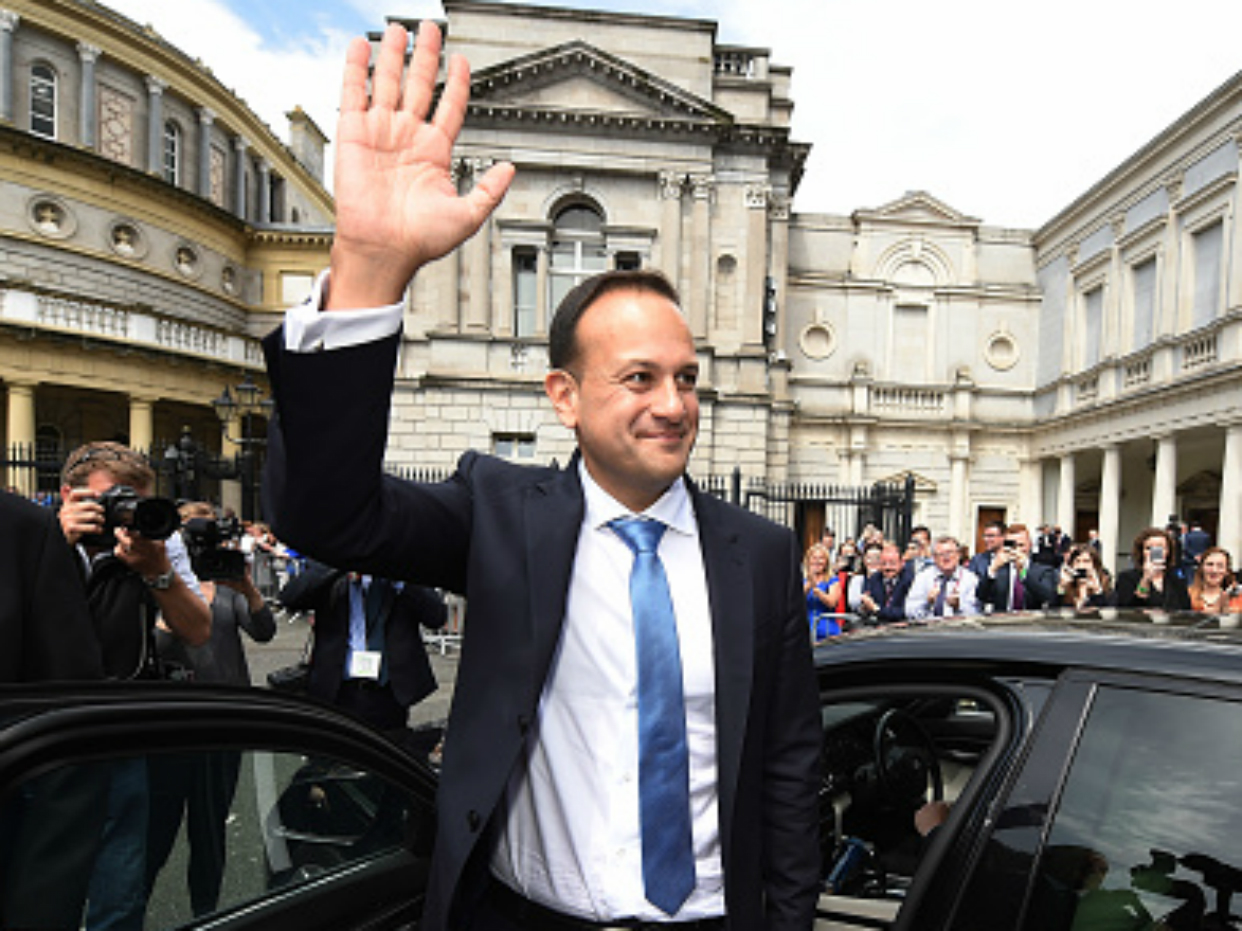Leo Varadkar says Brexit deal will be ‘very difficult’
Irish premier complains of big gaps and toxic language as deadline nears

A free daily email with the biggest news stories of the day – and the best features from TheWeek.com
You are now subscribed
Your newsletter sign-up was successful
Irish premier Leo Varadkar says it will be “very difficult” for the UK and the EU to reach a Brexit agreement before the 31 October deadline.
Speaking to Irish state broadcaster RTE, the Taoiseach, who had a 45-minute phone call with Boris Johnson yesterday, said that “big gaps” remain between the two sides and that the language around the discussions had turned toxic “in some quarters”.
He said that Britain has “repudiated the deal that we negotiated in good faith with prime minister May's government over two years and have sort of put half of that now back on the table, and are saying that's a concession”.
The Week
Escape your echo chamber. Get the facts behind the news, plus analysis from multiple perspectives.

Sign up for The Week's Free Newsletters
From our morning news briefing to a weekly Good News Newsletter, get the best of The Week delivered directly to your inbox.
From our morning news briefing to a weekly Good News Newsletter, get the best of The Week delivered directly to your inbox.
Varadkar vowed to endeavour until the “last moment” to reach a deal with the UK, but “not at any cost” to his country, Northern Ireland and the rest of Europe.
Asked about the prospect of a breakthrough before the summit of EU leaders on 17 October, he said: “I think it's going to be very difficult to secure an agreement by next week, quite frankly.”
Following Johnson’s call with his opposite number, Downing Street said that “both sides strongly reiterated their desire to reach a Brexit deal” and hoped to meet in person later in the week.
Meanwhile, The Guardian reports that the Irish government has condemned what it calls “misinformation” and “pressure” from Britain. Irish foreign minister Simon Coveney denied accusations from Downing Street that Dublin had virtually sabotaged any chance of compromise.
A free daily email with the biggest news stories of the day – and the best features from TheWeek.com
“No country wants a deal more than Ireland but we will not strike a deal at any cost,” he told a press conference in Dublin. He complained of “conflicting reports” from London and “a hard line” from those briefing the media.
Johnson’s chances of a Brexit deal were already hanging by a thread after a disagreement with Angela Merkel took negotiations to the brink of collapse.
During an early morning call, the German chancellor rebuffed Johnson’s appeal for help to rescue negotiations over his new backstop proposals. Downing Street said that Merkel’s response was a “clarifying moment” which suggested that a deal was “essentially impossible, not just now but ever”.
Sky News said the development prompted “a backlash from Brussels”. The quotes from Downing Street prompted Donald Tusk, president of the European Council, to accuse Johnson of playing a “stupid blame game”.
The Times notes that the “diplomatic spat” is a less than ideal state of affairs as the 31 October deadline approaches.
For a round-up of the most important stories from around the world - and a concise, refreshing and balanced take on the week’s news agenda - try The Week magazine. Get your first six issues for £6
-
 6 of the world’s most accessible destinations
6 of the world’s most accessible destinationsThe Week Recommends Experience all of Berlin, Singapore and Sydney
-
 How the FCC’s ‘equal time’ rule works
How the FCC’s ‘equal time’ rule worksIn the Spotlight The law is at the heart of the Colbert-CBS conflict
-
 What is the endgame in the DHS shutdown?
What is the endgame in the DHS shutdown?Today’s Big Question Democrats want to rein in ICE’s immigration crackdown
-
 How corrupt is the UK?
How corrupt is the UK?The Explainer Decline in standards ‘risks becoming a defining feature of our political culture’ as Britain falls to lowest ever score on global index
-
 The high street: Britain’s next political battleground?
The high street: Britain’s next political battleground?In the Spotlight Mass closure of shops and influx of organised crime are fuelling voter anger, and offer an opening for Reform UK
-
 Biggest political break-ups and make-ups of 2025
Biggest political break-ups and make-ups of 2025The Explainer From Trump and Musk to the UK and the EU, Christmas wouldn’t be Christmas without a round-up of the year’s relationship drama
-
 ‘The menu’s other highlights smack of the surreal’
‘The menu’s other highlights smack of the surreal’Instant Opinion Opinion, comment and editorials of the day
-
 Is a Reform-Tory pact becoming more likely?
Is a Reform-Tory pact becoming more likely?Today’s Big Question Nigel Farage’s party is ahead in the polls but still falls well short of a Commons majority, while Conservatives are still losing MPs to Reform
-
 Asylum hotels: everything you need to know
Asylum hotels: everything you need to knowThe Explainer Using hotels to house asylum seekers has proved extremely unpopular. Why, and what can the government do about it?
-
 Taking the low road: why the SNP is still standing strong
Taking the low road: why the SNP is still standing strongTalking Point Party is on track for a fifth consecutive victory in May’s Holyrood election, despite controversies and plummeting support
-
 Is Britain turning into ‘Trump’s America’?
Is Britain turning into ‘Trump’s America’?Today’s Big Question Direction of UK politics reflects influence and funding from across the pond